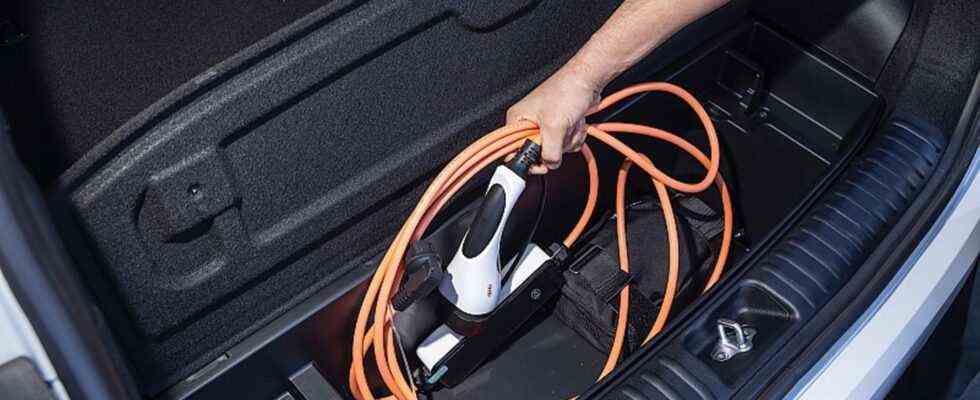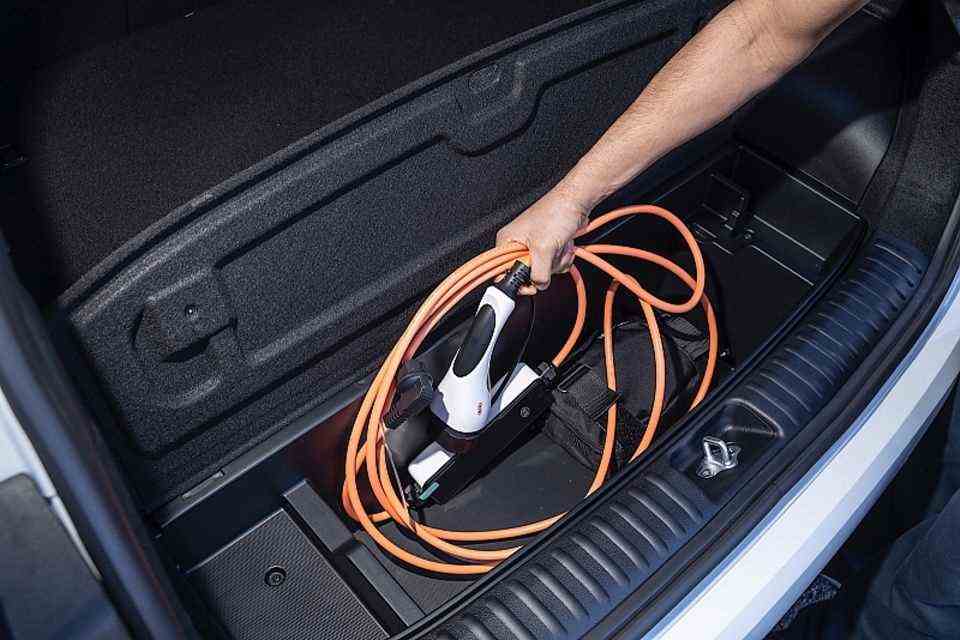Background: plug-in bonus at the end?
A question of timing
Kia Ceed SW plug-in hybrid
© press-inform – the press office
Funding for plug-in vehicles would actually expire at the end of the year – to the detriment of many car buyers. But the traffic light coalition wants to let the premium run for another year. Can she do it fast enough?
The all-clear was on the table shortly after 3 p.m. on November 24th, 177 pages thick. The traffic light parties presented their coalition agreement in front of the capital city press in Berlin. An essential sentence in it for many car buyers: “In particular due to the existing delivery difficulties of the manufacturers for plug-in hybrid vehicles that have already been ordered, we will continue the innovation bonus to support the purchase of electric cars unchanged according to the previous regulation until December 31, 2022.” A sigh of relief was due for everyone who has just ordered a vehicle with a plug-in engine and has factored in the state subsidy for it.
That was up to now on the brink. “The environmental bonus for electric vehicles that are on the list of eligible vehicles of the Federal Office for Economics and Export Control (BAFA) currently consists of two-thirds of a state share, which is paid out by BAFA, and one third of a manufacturer’s share , provided the vehicle is registered after June 3rd, 2020 and until December 31st, 2021 “, explains the VW configurator the old legal situation. A bonus of up to EUR 7,500 was possible.
However, only those who had registered their plug-in hybrid car by the end of the year would have benefited from the state subsidy. The date of purchase does not matter. Due to the significantly longer delivery times of the manufacturers, this would have become a problem for many. Even those who ordered their new car in the summer and had a delivery time of a few weeks, or months at the most, had to worry. And the dealerships feared problems with angry customers.
According to the coalition agreement, both are off the hook for now, and the approval period has been extended by one year. However, there is still a residual risk: If the new funding guidelines do not arrive before December 31, the innovation bonus will expire on that day. Although it was already clear since the car summit a year ago that a revision of the guideline would be necessary to extend the innovation bonus by the end of 2021, the responsible ministries initially took their time. It was not until mid-September 2021 that the responsible Federal Ministry of Economics issued the revised funding guidelines for coordination between the other ministries. And it’s still there. On top of that. An examination by the European Commission is also necessary. In order to get through all of this by the end of the year, the mills of bureaucracy would have to work at an unusual pace.
The criticism of the bonus for buying a plug-in hybrid was no coincidence: the purely electric ranges were too short for many, the weight of the vehicles resulted in particularly high pollutant emissions in combustion mode. There were also reports about plug-in company cars that were returned after the lease with the charging cables still in their original packaging. The old federal government already had tightening plans: From January 1, 2022, a purely electric minimum range of 60 kilometers would have been necessary for funding instead of the 40 kilometers previously required.
The coalition partners take on the hybrid company cars again separately: They “should only be privileged in the future if the vehicle is operated predominantly (more than 50 percent) also in purely electric drive mode. If the vehicle is not predominantly used in electric drive mode or if the purely electric driving part is not proven, the benefit does not apply and the use of the company car is subject to regular taxation. ” Incentives are to be set to “use these vehicles electrically powered as emission-free as possible and also to exploit their ecological advantages”. How this should be controlled is not in the coalition agreement.
But the further path of the premium is already set out in the coalition agreement: “We want to reform the subsidies for electric vehicles and plug-in hybrids on a degressive and fundamentally basis so that, from January 1, 2023, it will only be issued for vehicles that can be shown to be positive Have a climate protection effect that is only defined by an electric portion of the journey and a minimum electric range. The minimum electric range of the vehicles must be 80 kilometers from August 1, 2023. ” And even the expiry of the premium is stipulated in the contract: “Beyond the end of 2025, the innovation premium will no longer be required.”


